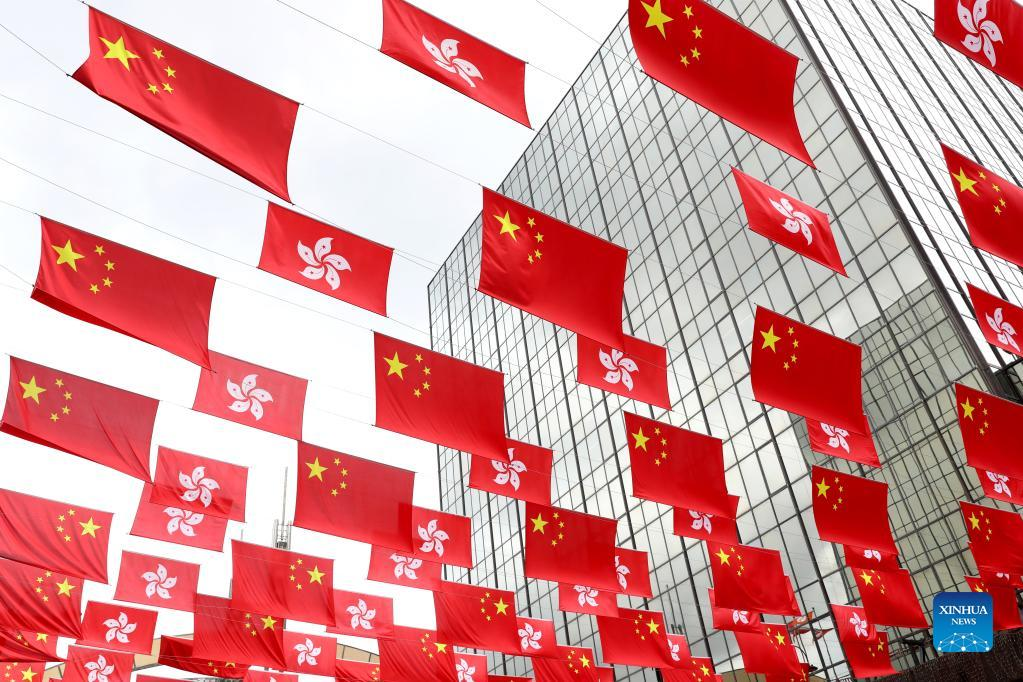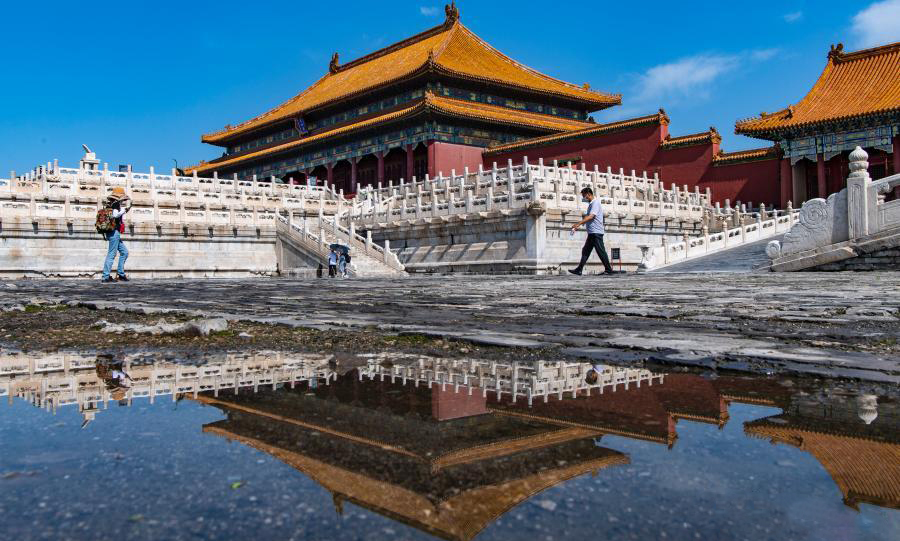Xi's speech a 'beacon of light' for HK's future

China's national flags and the Hong Kong Special Administrative Region (HKSAR) flags are hung above a street in Hong Kong, June 20, 2022. [Photo/Xinhua]
President Xi Jinping's speech on July 1 marking the 25th anniversary of Hong Kong's return to the motherland serves as "a beacon of light "for the city's development, pointing the way toward a brighter future, said a high-level central government official in charge of Hong Kong affairs and various local political heavyweights on Monday.
They made the remarks during and after a seminar held simultaneously in Beijing, Hong Kong and Macao by the Chinese Association of Hong Kong and Macao Studies, a Beijing-based think tank, to study Xi's speech.
Speaking at the seminar, Xia Baolong, director of the Hong Kong and Macao Affairs Office of the State Council, said Xi's speech was a beacon of light for the development of "one country, two systems", as it was based on deep historical logic and guides the way for Hong Kong's stage of transitioning from chaos to order and then to greater prosperity.
Xia called on those taking part in the seminar to be participants in ensuring "patriots administering Hong Kong", and stressed that anyone who dares to challenge the bottom line of the "one country, two systems" principle at any moment will surely be punished.
He also urged the Hong Kong authorities to proactively improve their governance, prioritize problems related to people's livelihoods, and unite all patriotic forces in safeguarding Hong Kong's stability.
Meeting the media after the seminar, Hong Kong Chief Executive John Lee Ka-chiu said the expectations and proposals put forward by Xi will be the direction of Hong Kong's governance over the next five years.
Lee added that his policy vision covers the major Hong Kong issues of concern to Xi, and the new government has already sprung into action to meet the president's expectations.
For example, within the first month of taking office, the Hong Kong government had set up four task forces to focus on vital livelihood issues. In addition, it pledged to establish a policy unit to facilitate the chief executive in policymaking related to the nation's development.
Looking ahead, Lee said the SAR government will also focus on youth development and set up service teams in all 18 districts to gather public opinions. He revealed that he will deliver his first policy address in October and launch a public consultation to gather views to set as policy goals.
Maria Tam Wai-Chu, deputy director of the Basic Law Committee of the Hong Kong Special Administrative Region, stressed the importance of the central government exercising overall jurisdiction over Hong Kong, and said that this was the source of Hong Kong's high level of autonomy.
Regina Ip Lau Suk-yee, convener of the Executive Council, said that Xi gave significant guidance with respect to Hong Kong governance, cooperation between the executive and legislative bodies, and the handling of major social problems.
Ip also cautioned that the city should remain vigilant, as anti-China forces aiming to disrupt Hong Kong could still be colluding with foreign powers.
Lau Siu-kai, vice-president of the Chinese Association of Hong Kong and Macao Studies, said that despite the National Security Law for Hong Kong and improvements to the electoral system, the West could still affect the special administrative region's administration by sabotaging and smearing the city.
But Lau is confident that the central government and the SAR government will withstand the external obstructions.
Photos
Related Stories
Copyright © 2022 People's Daily Online. All Rights Reserved.









